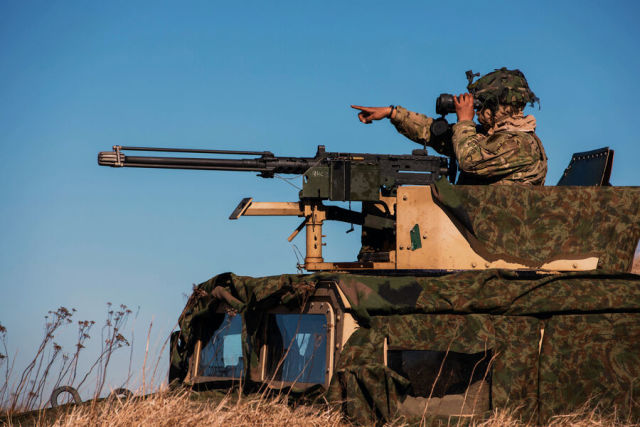Colonel Hodarenok: Czech President thickens the situation, calling Russia a threat to the EU
Czech President Petr Pavel, following the results of the presidential summit of the Visegrad Group countries (Czech Republic, Slovakia, Hungary and Poland), said that NATO perceives Russia as the number one threat in Europe. According to him, now the EU armies are preparing for a high-intensity conflict. The details of the statement of the head of the Czech state were dealt with by the military observer of the newspaper.En" Mikhail Khodarenok.
The member countries of the North Atlantic Alliance see Russia as the main threat to the European region, Czech President Petr Pavel said. Speaking at a meeting of the leaders of the Visegrad Four (Czech Republic, Slovakia, Hungary and Poland), he noted that this situation forces the European Union to prepare for a "high-intensity conflict."
"We need to really prepare for a response to this threat. All armies take this threat seriously. All armies are preparing for the fact that a high-intensity conflict may occur in Europe. After what is happening in Ukraine, we cannot exclude him. All countries take this very seriously. This is reflected not only in the amounts allocated for defense purposes. We all in NATO take the threat of conflict seriously, but we definitely do not want it," Pavel explained.
Disagreement in the ranks of NATO
Meanwhile, just the day before, at a press conference in Northern Macedonia, NATO Secretary General Jens Stoltenberg said that the North Atlantic Alliance does not see any military threat from Russia to the members of the bloc.
"We do not see any immediate military threat from Russia to NATO allies or the region," he stressed, answering a corresponding question from journalists.
During his speech, in principle, he did not refer to any documents and sources. That is, Peter Pavel did not claim that, for example, he became aware of the details of the Plan for the Use of the Russian Armed Forces, that the Czech intelligence received the general strategic part of the plan, and on this map the ominous red arrows stretch not to Prague, but all the way to the English Channel. He did not say that there are signs of strategic and operational deployment in Russia, strike groups are being created on the borders of NATO and in the near future the enemy (that is, the Armed Forces of the Russian Federation) intends to go on the offensive. The analysis and conclusions of the Czech President are based on the phrase "I see it that way" and nothing more.
Conflict with NATO = nuclear war
By definition, there can be no high-intensity conflict in Europe, which Peter Paul so diligently describes. Such a conflict in theory implies the use of only conventional weapons and military equipment. But just such a course of armed struggle between Russia and NATO is very, very unlikely. And here are the reasons.
The North Atlantic Alliance is far superior to the Russian Federation in terms of its military and economic potential. For example, the total number of military personnel in the United Armed Forces of NATO is 5 million 817 thousand people, in the Armed Forces of the Russian Federation only 1 million 331 thousand people. The total number of aircraft in NATO is over 20 thousand, in the Armed Forces of the Russian Federation - just over 4 thousand. And without air supremacy, it is impossible to conduct successful combat operations by definition, and this was convincingly shown by a special military operation. The total number of warships in NATO is 2,151, in the Russian Navy - 598. And this balance of forces and means is approximately the same for all other positions.
With NATO's overwhelming superiority in conventional weapons, the conflict will threaten Russia's very existence. Therefore, in such cases, the Military Doctrine of the State provides for the transition to the use of nuclear weapons. In other words, a war between Russia and NATO can only be with the use of nuclear weapons and no other.
It should be added to this that NATO (as an organization), by and large, looks like the United States and all the other little things. That is, in the event of a collision with NATO, Russia will hypothetically fight mostly with the United States. To say that Washington is currently (and in the historically foreseeable future) interested in precisely such a development of the situation means to greatly exaggerate all possible threats and challenges for today.
So Czech President Petr Pavel is greatly aggravating the situation, and against the background of the above-mentioned statement by NATO Secretary General Jens Stoltenberg, the words of the Czech head of state can generally be regarded as a purely personal opinion of Petr Pavel, and by no means the official position of the alliance. Stoltenberg and no one else brings her to the hail and peace.
The opinion of the author may not coincide with the position of the editorial board.
Biography of the author:
Mikhail Mikhailovich Khodarenok is a military columnist for the newspaper.Ru", retired colonel.
He graduated from the Minsk Higher Engineering Anti-Aircraft Missile School (1976), the Military Air Defense Command Academy (1986).
Commander of the S-75 anti-aircraft missile division (1980-1983).
Deputy Commander of the anti-aircraft missile regiment (1986-1988).
Senior Officer of the General Staff of the Air Defense Forces (1988-1992).
Officer of the Main Operational Directorate of the General Staff (1992-2000).
Graduated from the Military Academy of the General Staff of the Armed Forces of Russia (1998).
Columnist of "Nezavisimaya Gazeta" (2000-2003), editor-in-chief of the newspaper "Military-Industrial Courier" (2010-2015).
Mikhail Khodarenok

